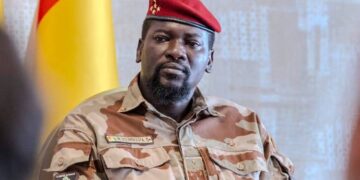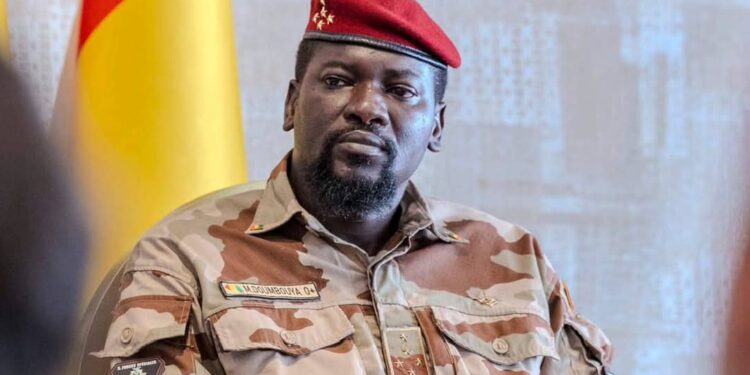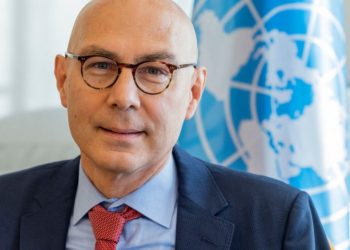By Enyichukwu Enemanna
Guinea’s military government has imposed a compulsory fee of 875m Guinean francs ($100,000; £75,000) on all candidates seeking to contest in the country’s presidential election to usher in civilian rule.
Head of the junta-led government, Col. Mamady Doumbouya has defended the high cost, saying it was needed to ensure only credible candidates take part in the December election.
Critics and opposition figures have however reacted with a shock over the cost. The upcoming election is expected to see the military hand over to a democratically elected government.
Guinea has been under military rule since Doumbouya seized power in a 2021 coup.
The elections are being held under a new constitution that allowed Doumbouya to run for the presidency although he has not announced if he plans to.
While the previous deposit was almost as high as 800m francs, political watchers had hoped it would be reduced to encourage more people to contest.
“This amount is huge,” BBC quoted a political analyst Kabinet Fofana as saying. “This decision adds to the growing criticism against the general direction of elections.”
Candidates who get more than 5% of the vote in the first round of the election will get their deposit repaid, authorities say.
A presidential candidate Faya Millimono however says the deposit used to be much lower.
“Until 2005, the deposit never exceeded 50 million [Guinean francs]. The madness began in 2010, when it was thought necessary to block certain candidates. The amount went from 50 million to 400 million, and today we’re talking about 900 million.”
The costs of participating in the elections are some of the highest in the West African sub-region.
In 2022, the governing party in Nigeria, the All Progressives Congress set a fee of 100m naira ($67,000 at the current rate, at the time it was more than $200,000) sparking widespread criticism.
In Cameroon, the deposit is $53,000 and Ivory Coast $90,000.
Guinea is heading into an election without former President Alpha Condé, who was ousted by Doumbouya, as well as former Prime Minister Sidya Touré of the Union of Republican Forces (UFR). Both figures are currently living outside the country.



































